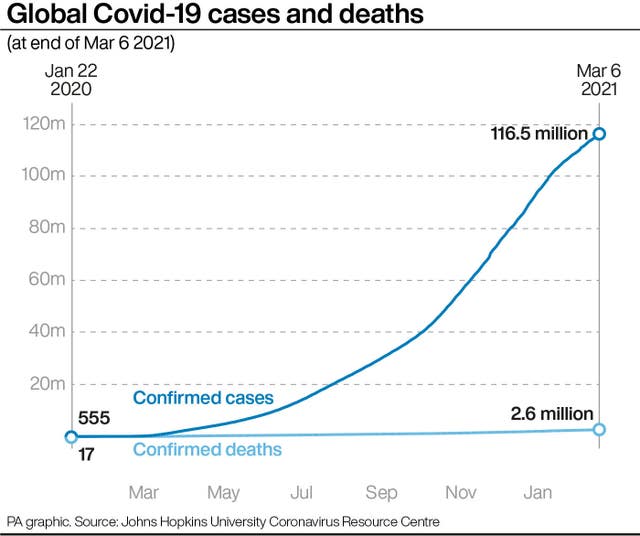Children need normality after misery of schools shutdown – Ofsted chief
Amanda Spielman also said there is ‘no perfect solution’ for exam results this year.

England’s chief schools inspector has expressed concern about eating disorders and self-harming among children as pupils stuck at home have endured “boredom, loneliness, misery and anxiety” during the two-month school shutdown.
Amanda Spielman said remote education “has been a real slog” for many and that teachers and parents “need to be alert” to more serious mental health difficulties persisting for a minority of children even after classrooms open again from Monday.
Ofsted chief inspector Ms Spielman also said there is “no perfect solution” for exam results this year but that teacher assessments were “a good attempt at creating the best we can do in very, very unsatisfactory circumstances”.
It came as the Education Secretary said proposed changes to the summer holidays and longer school days were being considered for helping pupils catch up on lost learning during the pandemic.
Ms Spielman said for the “vast majority of children the restoration of normality” should be enough to “lift those symptoms” of mental health difficulties like loneliness and anxiety.
She told the Sophy Ridge on Sunday programme on Sky News: “There is a minority – and let’s hope it is not too large a minority – whose problems have increased and it is really important that we are good at recognising where problems are arising.
“Things like eating disorders, things like self-harm and mental health services are very aware of the kinds of problems that have been increasing and whether they can expect more cases coming through, so everybody needs to be alert to these.”
Meanwhile, academics reported an “explosion of tics” and Tourette’s symptoms particularly among adolescent girls during the pandemic, which researchers believe has been fuelled by Covid-related anxiety.
Specialists writing in the journal Archives of Disease in Childhood reported concerns that influential users of social media sites like TikTok posting videos of their tics “may be inadvertently reinforcing and maintaining symptoms” among users.
In her final address as children’s commissioner for England last month, Anne Longfield said it is “impossible to overstate how damaging the past year has been for many children”.
Ofsted chief Ms Spielman said current Ofsted monitoring visits have shown “the extraordinary efforts that schools have been putting into remote education”.

She added: “It’s been a slog, it’s been a real slog.
“Children on the receiving end are bored, lonely, miserable, anxious and really, really want the normal experience again.”
She said she hoped mask-wearing in schools would not last beyond Easter, telling the programme: “I love the idea of children being able to come back in summer term able to see everybody fully.”
Education Secretary Gavin Williamson has recently insisted A-level and GCSE grades decided by teachers will be fair amid concerns the plan will result in grade inflation.
He confirmed to MPs last month that “no algorithm” will be used to decide grades this summer, with the judgment of teachers relied on instead and any changes made by “human intervention”.
He told Sophy Ridge on Sunday: “Where there are outliers, where schools have submitted grades that do not seem to be consistent with what they have always been able to achieve in the past, any of those outliers, exam boards will be able to look at those incredibly closely and actually work with the schools to make sure there is the right assessment.”
Asked whether the approach was right, Ms Spielman told the programme: “There’s no perfect solution this year.
“We have a system that’s designed for normal years when all children have had more or less the same access to education. This year, for obvious reasons, it’s been very unequal across the country between schools.
“We’ve got a sort of hybrid here, which I think is a good attempt at creating the best we can do in very, very unsatisfactory circumstances.
“I think what we need to do is have everybody embrace it and do as much as we can to make it work.”
Meanwhile, the vaccine programme continues to accelerate, with people aged between 56 and 59 being invited to book Covid-19 jabs this week.
Hundreds of thousands of letters for the age group began landing on doorsteps on Saturday and the latest round of invites comes after eight in 10 people aged 65-69 took up the offer of a jab, NHS England said.
Across the whole of the UK, more than a million people have received both doses of a Covid-19 vaccine while almost 21.8 million people have had one dose.





